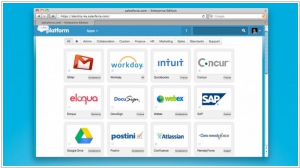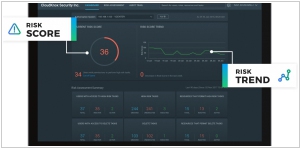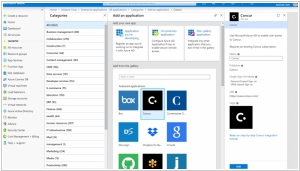Azure Active Directory vs Salesforce Identity
August 06, 2023 | Author: Michael Stromann
2

One login for all your web, mobile and on-premises apps. That makes it easier for IT. And users. Improve usability and security with standards-based single sign-on to all your enterprise apps. Provide single sign-on, authorization and mobile specific policies for standard Salesforce apps, or custom apps built with Mobile Services. Instant internal and external collaboration with social feeds built into Identity services.
Azure Active Directory (Azure AD) and Salesforce Identity are both identity management solutions, but they have key differences in terms of their functionalities and target audiences. Azure AD is a comprehensive cloud-based identity and access management service provided by Microsoft. It offers features such as user authentication, single sign-on (SSO), multi-factor authentication (MFA), and user provisioning. Azure AD is designed to provide identity services for various Microsoft products and services, as well as third-party applications and services integrated with the Azure ecosystem.
On the other hand, Salesforce Identity is a specialized identity management solution tailored for the Salesforce platform. It focuses on providing seamless access and identity management capabilities within the Salesforce environment. Salesforce Identity enables single sign-on across Salesforce applications and allows administrators to manage user access, authentication policies, and user provisioning within the Salesforce ecosystem. It also offers integration options with external identity providers and supports social login.
See also: Top 10 Identity Management platforms
On the other hand, Salesforce Identity is a specialized identity management solution tailored for the Salesforce platform. It focuses on providing seamless access and identity management capabilities within the Salesforce environment. Salesforce Identity enables single sign-on across Salesforce applications and allows administrators to manage user access, authentication policies, and user provisioning within the Salesforce ecosystem. It also offers integration options with external identity providers and supports social login.
See also: Top 10 Identity Management platforms
Azure Active Directory vs Salesforce Identity in our news:
2021. Microsoft acquires access management startup CloudKnox

Microsoft has recently completed the acquisition of the IAM (identity and access management) startup, CloudKnox Security. CloudKnox specializes in aiding organizations in implementing the least-privilege principles to mitigate risks and prevent security breaches. By integrating CloudKnox's activity-based authorization service, Azure Active Directory customers will gain comprehensive visibility, continuous monitoring, and automated remediation for managing permissions across hybrid and multi-cloud environments. Microsoft has plans to seamlessly integrate CloudKnox with its other cloud security services, such as 365 Defender, Azure Defender, and Azure Sentinel. This acquisition aligns with Microsoft's strategic efforts to bolster its security portfolio, as demonstrated by its recent acquisitions of IoT security startups CyberX and Refirm Labs.




